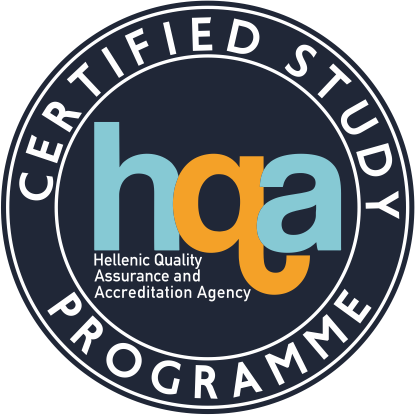Educational Psychology
Undergraduate level | 3rd semester | Compulsory Unit | ΓΕ4103
Credit Units ECTS: 5
Teaching Hours (Weekly): 3
Course Type: General Background
Prequisites: --
Teaching and Examination Language: Greek
For Erasmus students study course and exams are offered in English.

Course Material
Definitions of learning and learning processes. Behaviorist, cognitive, social, gestalt and humanistic theories of learning. Implications of the above learning theories for teaching. The model of multiple intelligences and that of emotional intelligence and their implications for teaching. Classroom management: How to deal with difficult pupils and promote communication in school. Emotional Intelligence and its implications for learning. In the context of the course students participate in personal development seminars, which aim at raising their awareness of personal development issues, such as recognition and expression of personal emotions, management of anxiety, etc, as well as issues related to coping with pupils’ learning problems and difficulties.
Learning Outcomes
On successful completion of the course students are able to:
- Understand basic issues related to learning
- Identify the principles of learning theories
- Apply the principles of learning theories in the learning process
- Understand the model of multiple intelligences and that of emotional intelligence (EI) and evaluate the contribution of EI in the learning process
- Define the new role of the teacher
- Understand issues related to classroom management and communication in school
- Be sensitive to personal development issues and communicate effectively with pupils and pupils’ parents
General Skills
Acquisition of skills in order to:
- Accomplish a task on individual basis
- Work in teams
- Have ability to adapt to new situations
- Show respect for diversity and multiculturalism
- Be able to make decisions
- Have sensitivity to gender issues
Learning and Teaching Techniques - Evaluation
Teaching Methods: Lectures, group work, viewing educational films, study of basic literature
Use of ICT: The learning process is supported by the e-class platform
Course Organization:
| Activity | Semester Work Load |
|---|---|
| Lectures | 20 |
| Study of basic literature | 25 |
| Assignments | 20 |
| Personal development seminars | 20 |
| Group activities | 40 |
| Total | 125 |
Assessment Methods:
The teaching language is Greek. English language is used for teaching Erasmus students.
The successful attendance of the personal development seminars, which take place in groups of 15 students each, is a prerequisite for participation in the examination of the course. Students are assessed by: a) Written examination (100%) of the final grade, or b) Written examination (80% of the final grade) and assignments (20% of the final grade), or c) two mid-term evaluations (50% of the final grade each), or d) two mid-term evaluations (40% of the final grade each) and assignments (20% of the final grade). The written examination includes multiple-choice questions, closed-ended questions, open-ended questions and essay questions. Assignments include oral and written (600 to 800 words) presentation of papers related to the content of the course. Erasmus students are evaluated on the basis of a literature review essay of 3000-3500 words based on a topic related to the content of the course.
Suggested Bibliography
- Maridaki-Kassotaki, K. (2012). Educational Psychology. Athens: Diadrasi [in Greek].
- Slavin, R. E. (2007). Educational Psychology (Ed. Kokkinos,K.). Athens: Metechmio [in Greek].
- Elliott, S.N., Kratochwill, Th. R., J. Littlefield Cook, & , J. F. Travers (2008). Educational Psychology (Trans. Μ. Solman, Fr. Κaliva, Eds. Leontari, Agg. & Efi Syggolitou). Athens: Gutenberg.
- Selected bibliography related to the course
- Psychology [in Greek]
- Sciences of Education [in Greek]
- Pedagogical Review [in Greek]
- Preschool and School Education [in Greek]
- Journal of Educational Psychology
- European Journal of Psychology of Education
Related scientific journals:



